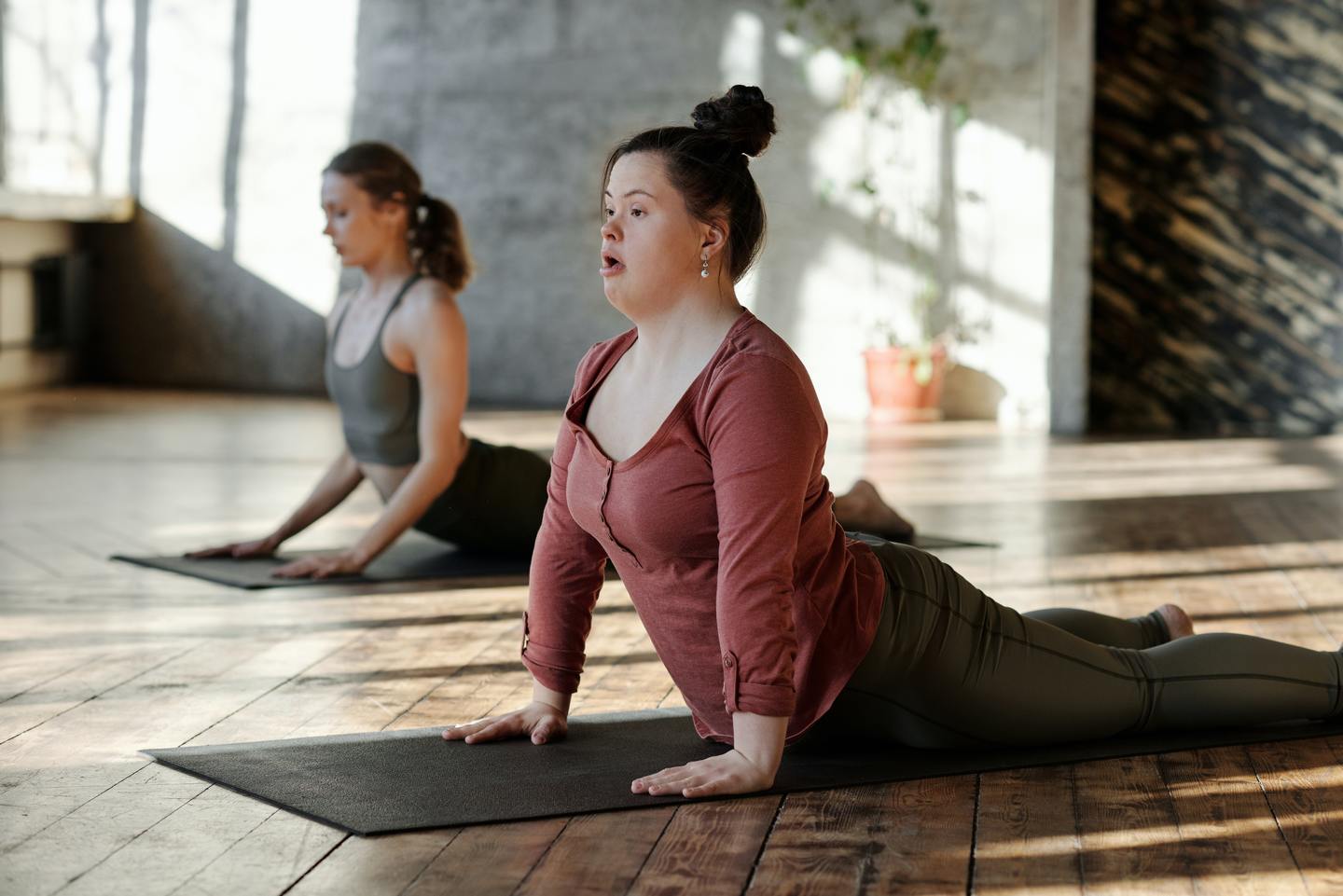Finding Inner Balance

Yoga as a Tool for Physical and Mental Wellbeing in Young Cancer Survivors
Yoga, originating from the Indian subcontinent, is a mind-body practice that combines breath control with physical poses to promote self-awareness and harmony. Its benefits extend beyond flexibility and strength, encompassing the realms of physical and mental wellbeing. This ancient practice is now gaining recognition as a valuable tool for young cancer survivors (YCS), offering them a path towards healing and self-discovery. (1)
Promising Results: Yoga Alleviates Cancer-Related Symptoms
Research exploring the effects of yoga on cancer survivors, including adolescents and young adults, has yielded promising results. Studies have shown that yoga can alleviate cancer-related symptoms such as fatigue, pain and depression. (2) For YCS, yoga becomes a means to reclaim control over their bodies and minds, fostering resilience and improving their overall quality of life.
Cultivating Emotional Wellbeing: Yoga's Impact on Anxiety in Young Cancer Survivors
Notably, yoga has demonstrated its efficacy in reducing anxiety among YCS, enabling them to navigate the emotional challenges that accompany their journey. Additionally, they can experience significant improvements in social functioning through regular yoga practice. Moreover, yoga has been found to enhance the physical activity levels and functional mobility of both cancer survivors and their family and peers, contributing to a better quality of life for the entire network. (3)
Unlocking the Science: Understanding How Yoga Works on Neurobiology and Hormones
Researchers have delved into the mechanisms behind yoga's effectiveness, uncovering its influence on neurobiology, hormone modulation, and immune functionality. Yoga has been found to increase blood flow to the brain, leading to the release of dopamine and gamma aminobutyric acid, which contribute to a sense of well-being. (4) It also regulates the autonomic nervous system, promoting relaxation and reducing anxiety and pain perception. (5)
Lowering Cortisol Levels: Yoga's Role in Reducing Anxiety, Depression, and Stress
Further investigations have shown that yoga practice can modulate cortisol levels, with lower cortisol levels associated with decreased anxiety, depression, and perceived stress. Additionally, yoga has demonstrated effects on inflammatory markers and genomic activity, indicating its potential to reduce inflammation and promote overall health. (6)
Safe Practice: Importance of Experienced Teachers in Cancer Settings
While the physical nature of yoga practice poses a minimal risk of injury, it is crucial for YCS to practice under the guidance of experienced teachers with specific training in cancer settings. Adhering to safety precautions ensures a positive and beneficial yoga experience for these individuals who may already be dealing with chronic illnesses. (7)
Yoga offers YCS a pathway to finding inner balance, enabling them to reconnect with their bodies, manage symptoms, and cultivate mental wellbeing. By embracing this ancient practice, they embark on a transformative journey of healing, resilience, and self-discovery, empowering themselves to thrive beyond cancer's shadow.
Author: Sara Vivirito, CEIPES
References
- Agarwal RP, Maroko-Afek A: Yoga into cancer care: A review of the evidence-based research. Int J Yoga 11:3-29, 2018.
- Prathikanti S, Rivera R, Cochran A, et al: Treating major depression with yoga: A prospective, randomized, controlled pilot trial. PLoS One 12:e0173869, 2017
- Wurz A, Chamorro-Vina C, Guilcher GMT, et al: The feasibility and benefits of a 12-week yoga intervention for pediatric cancer out-patients. Pediatr Blood Cancer 61:1828-1834, 2014.
- Streeter CC, Jensen JE, Perlmutter RM, et al: Yoga Asana sessions increase brain GABA levels: A pilot study. J Altern Complement Med 13:419-426, 2007.
- Rivest-Gadbois E, Boudrias MH: What are the known effects of yoga on the brain in relation to motor performances, body awareness and pain? A narrative review. Complement Ther Med 44:129-142, 2019.
- Vadiraja HS, Raghavendra RM, Nagarathna R, et al: Effects of a yoga program on cortisol rhythm and mood states in early breast cancer patients undergoing adjuvant radiotherapy: A randomized controlled trial. Integr Cancer Ther 8:37-46, 2009.
- Cramer H, Quinker D, Schumann D, et al: Adverse effects of yoga: A national cross-sectional survey. BMC Complement Altern Med 19:190, 2019.
